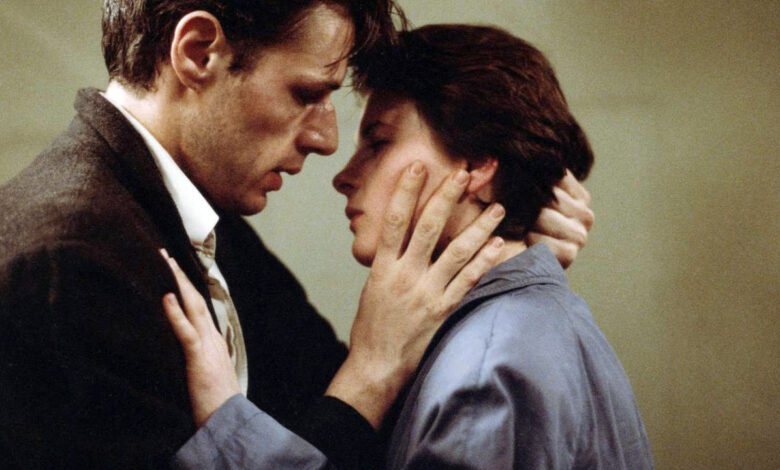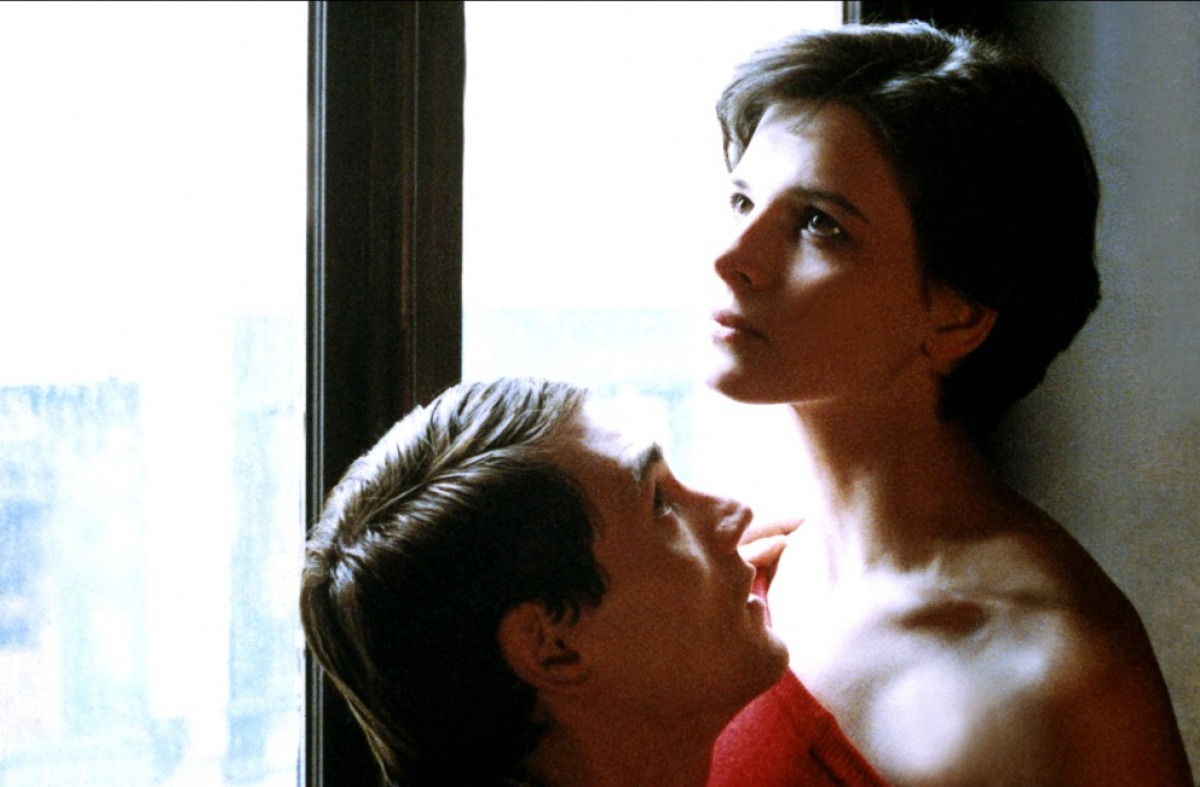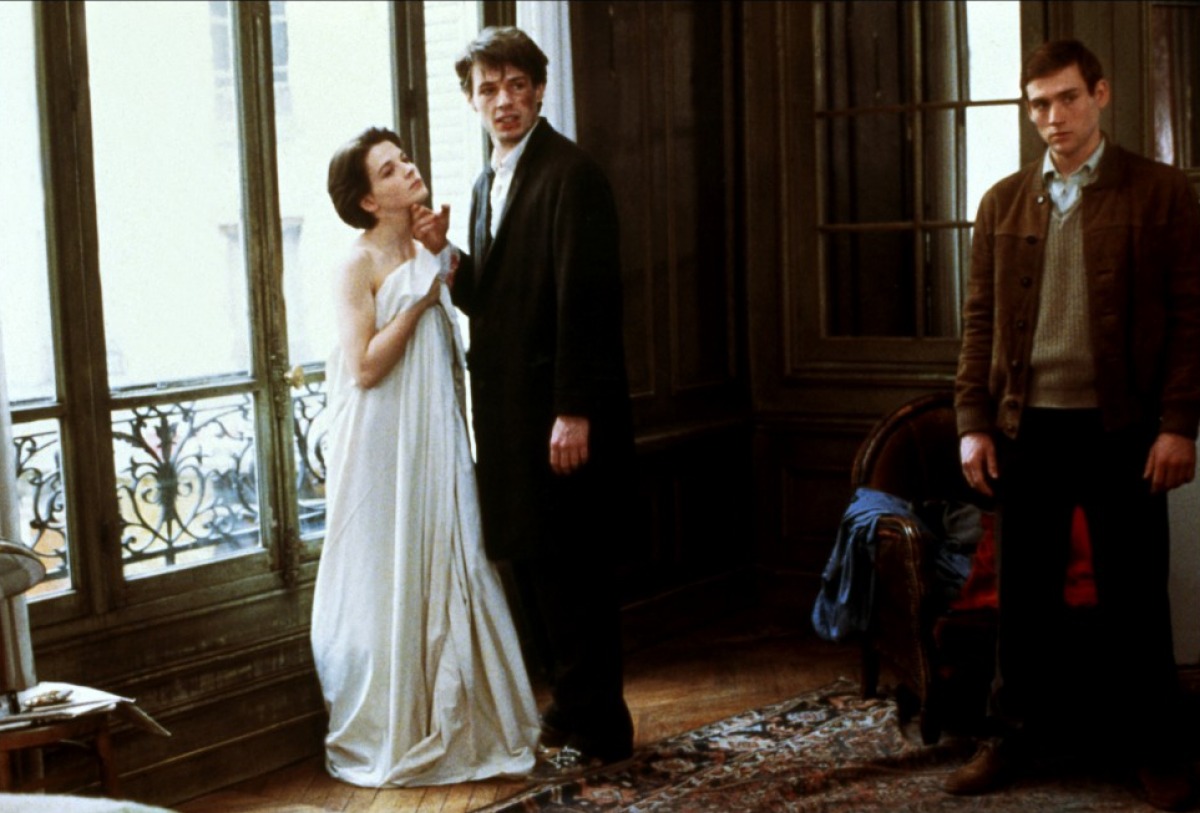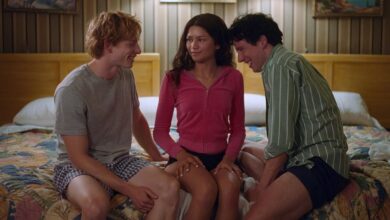Rendez-vous (1985): “She didn’t come to Paris for love… but lust found her anyway.”

The City of Lights, and Darkness
Paris. A place of art, theatre, and endless possibilities. But for Nina, a radiant young actress with dreams burning behind her eyes, the city opens a door not just to the stage — but to the rawest corners of the human soul. Rendez-vous is not a film about falling in love. It’s about falling into someone. It’s about obsession, risk, and bodies that speak before mouths do.

The Girl, the Stage, the Hunger
Nina (played with animalistic vulnerability by Juliette Binoche in one of her earliest roles) isn’t chasing fame. She’s chasing heat. The kind of heat that makes you forget your lines and lose your clothes. Paris becomes her playground, but it’s also a cage. Her arrival ignites something dark in the men around her. And soon, she finds herself caught between two extremes: Quentin, the destructive lover who loves her too much, and Paulot, the shy suitor who doesn’t know what to do with his hands — or his heart.
The theater is only the surface. Backstage, in unmade beds and smoky corridors, the real drama unfolds. Nina is desired, but also hunted. She becomes muse and mirror — reflecting the hunger of those who want her, while slowly unraveling under their gaze.
Lust as Language, Desire as Destiny
André Téchiné doesn’t flinch. The camera lingers where it shouldn’t. Eyes linger where they mustn’t. Rendez-vous strips away dialogue and dives into impulse — the way two bodies can communicate more honestly than two mouths ever will. The film doesn’t care if it makes you uncomfortable. It wants to. It dares you to watch. It dares you to want.
There are moments so intimate they feel stolen. Sex scenes aren’t shot with romantic lighting — they’re shot like memories, fragments, glimpses through a keyhole. We aren’t voyeurs. We’re accomplices.

When Love Turns Carnal and Carnal Turns Cruel
Nina isn’t passive. She chooses. But she’s also drawn, again and again, to danger. Her heart flutters for Paulot, but her body betrays her to Quentin. He’s everything she should avoid: unpredictable, violent, magnetic. And yet, when he touches her, it’s like the world falls away. That’s the riddle of Rendez-vous: why do we crave the things that destroy us?
This isn’t a love triangle. It’s a battle between tenderness and madness. Between safety and surrender. Between control and chaos. And Nina, the flame between two moths, gets scorched.
The Final Curtain Falls
In the end, Rendez-vous isn’t about who she ends up with. It’s about what she becomes. Beneath the skin, behind the eyes, inside the ache — we watch her transform. What begins as a story of a girl trying to act… ends as a portrait of a woman who learns how much she’s willing to give, just to feel something real.
Some films entertain. Others seduce. Rendez-vous does both — and then leaves you tangled in the sheets, breathless, wondering: did you just watch a movie… or survive an affair?





